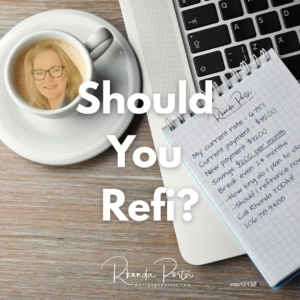Just in time for Valentines Day, I thought I would revisit a word that used to horrify my husband before we married a couple years ago (on April Fools): commitment. I’m thinking about this because I received this comment from a potential client, it’s a common one and I appreciate their honesty:
"I would like to go ahead with preapproval if it does not cost anything and does not bind me in any way to anything….How long can I shop after getting preapproved?"
There are many issues that this brings up. My response to this home buyer in a chocolate covered nut-shell (you got to have chocolate on Valentines) is that I’m happy to provide a prequalification without obligation. However, I will not do a preapproval at this stage in our relationship. Here’s why:
- A true preapproval involves more than just my efforts and time, which alone are valuable and limited. With a preapproval, I may also be involving the time of my Processor and Underwriter.
- Back to my time: I have to prioritize which clients I’m working with in any given day. My first priority is to bona fide transactions. I must take care of those who have committed to working with me first. Especially in our current market.
- Preapprovals also involve more costs. There is a fee to underwriting and credit (minimal for credit).
- Lenders are relying on our commitments as originators when we submit loans to them. Having a higher "fall out" from clients who do not close a transaction jeopardizes our relationships with those lenders. One lender I work with tracks "fall out" and charges a slight fee (0.05 bps) when our fall out ratio is too high.
Other Loan Originators may be perfectly happy to issue a preapproval letter to people who are not ready to commit to a Mortgage Professional. The preapproval letter may or may not be legitimate.
As a home buyer, would you rather work with a Loan Originator who is chasing ever rate shopper (which is a lot of work) or a Mortgage Professional who is committed to you, your transaction and sticking around for you after closing by continuing to keep you informed of news that may impact your mortgage?
Related Post: When Are You Obligated to a Loan Originator?
My Favorite Valentine’s Post: There’s No Love for the Subprime Borrower


 How to Calculate Your Break-Even Point When Refinancing (2026 Guide)
How to Calculate Your Break-Even Point When Refinancing (2026 Guide)




